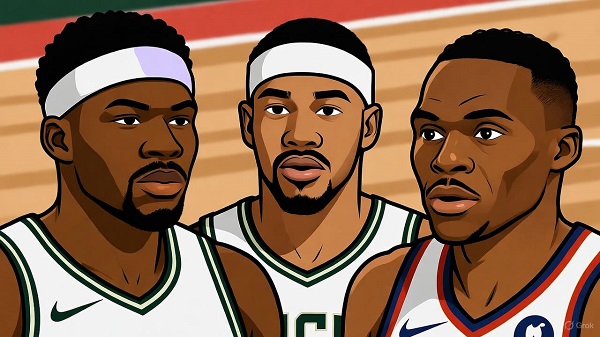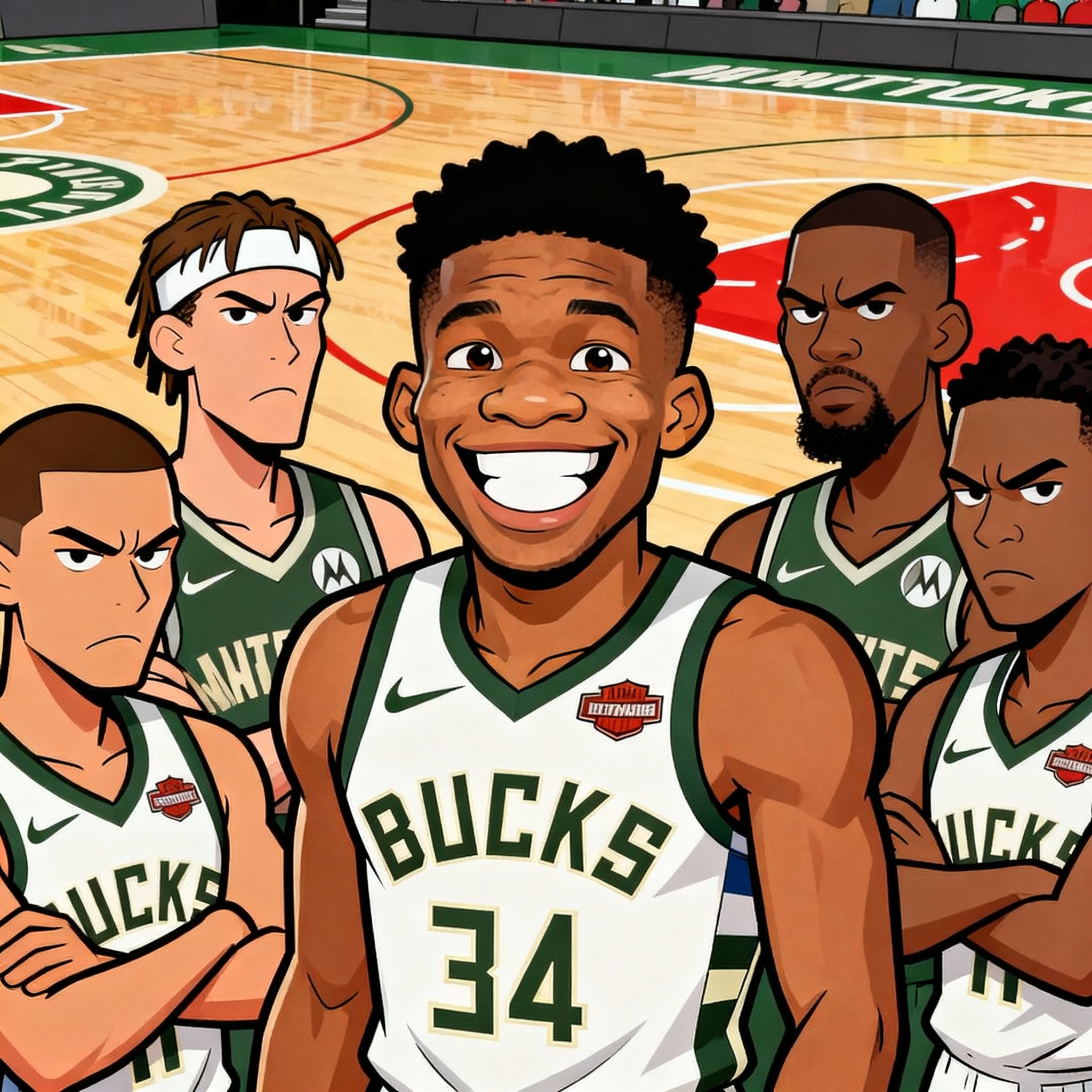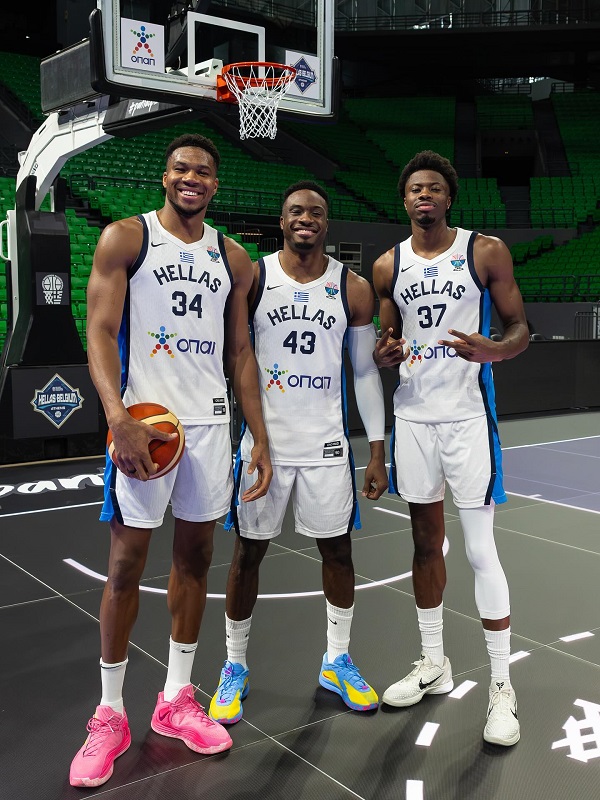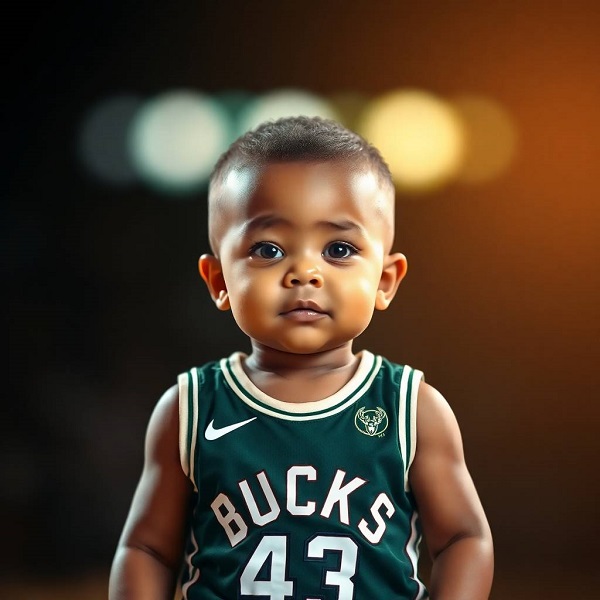As the 2025-26 NBA season kicks off, the Milwaukee Bucks find themselves at a crossroads. With a revamped roster featuring stars like Giannis Antetokounmpo, Myles Turner, and Kyle Kuzma, the team is poised for contention in the Eastern Conference. But one glaring omission stands out: Russell Westbrook. Just days ago, the former MVP inked a one-year deal with the Sacramento Kings, marking his seventh team in as many years. This move comes after speculation linked Westbrook to Milwaukee, with analysts like Kendrick Perkins vocally advocating for the fit. Instead, the Bucks opted to maintain the status quo, including re-signing Thanasis Antetokounmpo—Giannis’ older brother—who continues to occupy a roster spot despite minimal on-court impact.
It’s hard not to see this as a massive wasted opportunity. While family loyalty is admirable, prioritizing it over a proven veteran like Westbrook could haunt the Bucks in their quest for another championship. Westbrook, at 36, still brings a unique blend of energy, leadership, and production that could have elevated Milwaukee’s bench and overall dynamism. Let’s dive into why passing on Russ is such a regrettable decision, breaking down the “family stacking” issue and the myriad ways Westbrook could have transformed this team.
The Bucks’ Curious Prioritization: Family Over Firepower?
First, a quick look at the Bucks’ roster decisions. Milwaukee has undergone significant changes this offseason, adding pieces like Turner for rim protection and Kuzma for scoring versatility. However, one constant remains: Thanasis Antetokounmpo. Signed to a veteran’s minimum deal, Thanasis has been with the Bucks since 2019, primarily as a locker-room presence and occasional end-of-bench player. His stats tell the story—averaging under 3 points and 2 rebounds per game in limited minutes, he’s more symbolic than substantive.
This isn’t to diminish the Antetokounmpo brothers’ inspiring journey from Greece to NBA stardom. Giannis has repeatedly credited his family for his success, and keeping Thanasis around fosters team morale. But in a league where every roster spot counts—especially for a title contender like the Bucks—allocating one to a player with negligible impact feels like nepotism over necessity. Reports suggest the Bucks explored veteran guards but ultimately stood pat, allowing Westbrook to head west. It’s a choice that prioritizes sentiment over strategy, and in the cutthroat NBA, that can be costly.
Why Russell Westbrook Would Have Been a Game-Changer for the Bucks
Now, onto the heart of the matter: Russell Westbrook’s potential impact. Despite his age and a nomadic recent career (from the Nuggets last season to now the Kings), Westbrook remains a force. He’s a nine-time All-Star, the all-time triple-double leader, and a player who embodies relentless energy. Analysts and fans alike have pointed to Milwaukee as an ideal landing spot, with ESPN’s Kendrick Perkins stating outright, “I think he should be on the Milwaukee Bucks right now.” Here’s a detailed breakdown of what Westbrook could have brought:
1. Elite Playmaking and Bench Leadership
The Bucks’ backcourt is solid with Cole Anthony and Kevin Porter Jr. handling point guard duties, but depth is a concern. Westbrook, thriving in a bench role during his time with the Clippers and Nuggets, averaged around 11 points, 5 rebounds, and 4 assists last season—efficient production in limited minutes. His ability to push the pace would have injected life into Milwaukee’s second unit, which struggled with stagnation in recent playoffs.
Imagine Westbrook orchestrating fast breaks, dishing to shooters like Gary Trent Jr. or lobs to Turner. His vision and passing—honed over 17 seasons—would alleviate pressure on Giannis, allowing the Greek Freak to focus on scoring rather than initiating offense. As one analyst noted, “Westbrook would be instant offense off the bench.”
2. Rebounding and Defensive Intensity
One of Westbrook’s underrated strengths is his rebounding prowess. As a guard, he averages over 7 rebounds per game career-wise, grabbing boards that spark transition opportunities. Pairing him with Giannis—who thrives in the open court—could have created a rebounding tandem reminiscent of Russ’s OKC days with Kevin Durant. The Bucks ranked middling in rebounding last season; Westbrook’s tenacity would address that, turning defensive stops into quick scores.
Defensively, while not the lockdown player of his prime, Westbrook’s athleticism and competitiveness add edge. Perkins highlighted this, saying Westbrook could “bring an edge the Bucks are missing.” In a conference loaded with guards like Jalen Brunson and Tyrese Haliburton, that intensity matters.
3. Veteran Mentorship and Locker-Room Presence
Beyond stats, Westbrook’s intangibles are invaluable. He’s a former MVP with championship experience (albeit without a ring), known for his work ethic and leadership. The Bucks, coming off a 48-34 season and early playoff exit, need that veteran voice to guide younger players like Andre Jackson Jr. and Chris Livingston.
Westbrook’s fiery personality could ignite a team that sometimes lacks urgency. As Clutch Points reported, his speed and athleticism make him “an ideal fit next to Giannis.” Contrast this with Thanasis’ role—more cheerleader than contributor—and the opportunity cost becomes clear.
4. Fit in the System and Low-Risk Addition
Critics might point to Westbrook’s shooting woes (career 30% from three) or turnover-prone style, but in a bench role, these are mitigated. The Bucks’ spacing with shooters like Trent and Kuzma would give him driving lanes, and under coach Doc Rivers—who has a history with vets—Westbrook could thrive without dominating the ball.
A one-year, minimum deal (what he signed with Sacramento) would have been low-risk, high-reward. Reddit discussions echoed this: “Bucks could use him… he’d make a great 6th man.”
A Championship Window Squandered?
The Milwaukee Bucks had a golden chance to add a Hall-of-Fame caliber player who could address key weaknesses, all while maintaining their core. Instead, by sticking with family-oriented roster spots, they’ve let Westbrook join a Western Conference rival. As the season unfolds, if the Bucks’ bench falters or their energy wanes, fans will undoubtedly wonder “what if?” It’s not too late for Milwaukee to learn from this—prioritize winning over everything else. For now, though, this feels like an enormous wasted opportunity in the Giannis era. But at the end of the day that is exactly what it was: Giannis again making the wrong choices.



